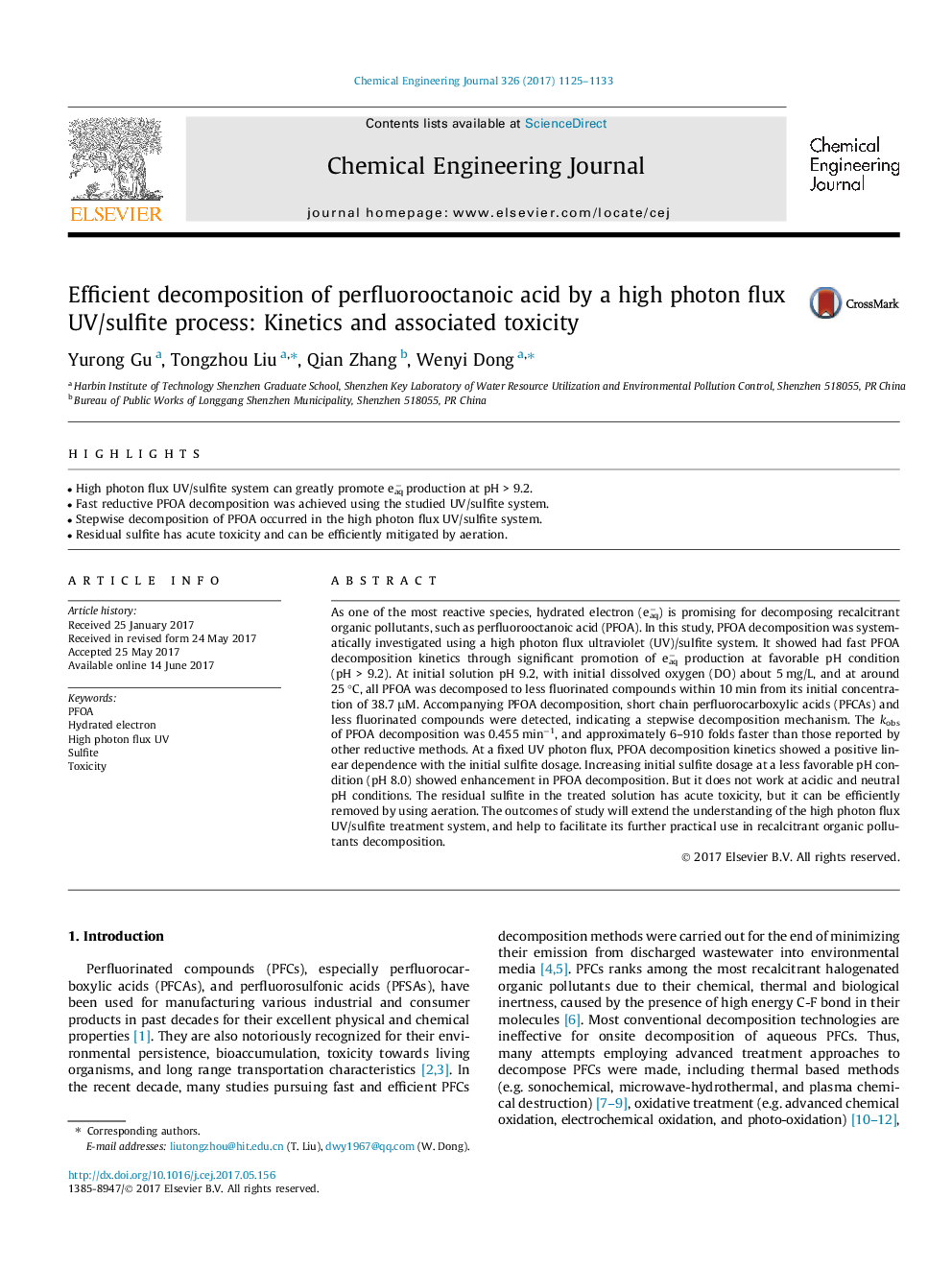| Article ID | Journal | Published Year | Pages | File Type |
|---|---|---|---|---|
| 6465546 | Chemical Engineering Journal | 2017 | 9 Pages |
â¢High photon flux UV/sulfite system can greatly promote eaqâ production at pH > 9.2.â¢Fast reductive PFOA decomposition was achieved using the studied UV/sulfite system.â¢Stepwise decomposition of PFOA occurred in the high photon flux UV/sulfite system.â¢Residual sulfite has acute toxicity and can be efficiently mitigated by aeration.
As one of the most reactive species, hydrated electron (eaqâ) is promising for decomposing recalcitrant organic pollutants, such as perfluorooctanoic acid (PFOA). In this study, PFOA decomposition was systematically investigated using a high photon flux ultraviolet (UV)/sulfite system. It showed had fast PFOA decomposition kinetics through significant promotion of eaqâ production at favorable pH condition (pH > 9.2). At initial solution pH 9.2, with initial dissolved oxygen (DO) about 5 mg/L, and at around 25 °C, all PFOA was decomposed to less fluorinated compounds within 10 min from its initial concentration of 38.7 μM. Accompanying PFOA decomposition, short chain perfluorocarboxylic acids (PFCAs) and less fluorinated compounds were detected, indicating a stepwise decomposition mechanism. The kobs of PFOA decomposition was 0.455 minâ1, and approximately 6-910 folds faster than those reported by other reductive methods. At a fixed UV photon flux, PFOA decomposition kinetics showed a positive linear dependence with the initial sulfite dosage. Increasing initial sulfite dosage at a less favorable pH condition (pH 8.0) showed enhancement in PFOA decomposition. But it does not work at acidic and neutral pH conditions. The residual sulfite in the treated solution has acute toxicity, but it can be efficiently removed by using aeration. The outcomes of study will extend the understanding of the high photon flux UV/sulfite treatment system, and help to facilitate its further practical use in recalcitrant organic pollutants decomposition.
